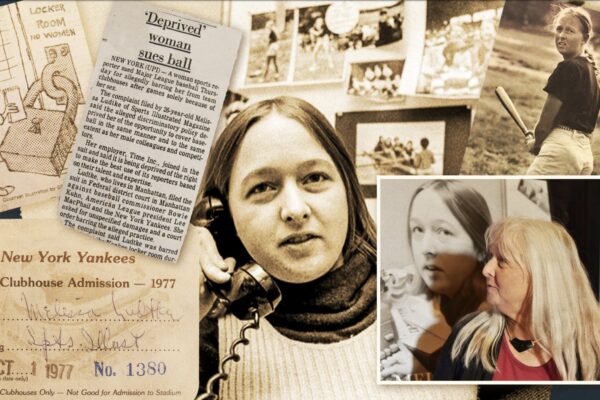We are leaving the hotel and I am not nervous. We are driving north on the 101 and I am not nervous. But as our car passes an office building and the facade of Levi’s Stadium, with this year’s National Championship logo present on the structure’s west side, my heart skips a beat or two. The strange thing was, I wasn’t nervous once our car reached Parking Lot 3, a short walk from the stadium. We go through security and head up to the media center. The main event of our trip is just hours away and I can’t wait.
As the countdown to kickoff winds down, I set up my notebook to create a simplified version of how I kept score of football games back in Kokomo, Indiana. It helps me keep a visual about how the drives progress during the game and which type of plays were run. At kickoff, I am not nervous nor am I anxious. Looking back, I am surprised that I wasn’t. But if I had heard this once since arriving at IUPUI, I had heard it a dozen times: If you can cover a high school football game, you can cover a Super Bowl. Now this game might not have been the Super Bowl, but it was close enough.
We were in the second row of the enormous main press box, at the southwest corner, three seats between the aisle and a window. That made the evening a little bit more personal for the three of us, at least for me.
This was my first college football game. When I went down to the field during the final minutes, I stood on the Alabama sideline and observed overwhelming dejection for both the team and fans. When the confetti started to fly at the end of the Clemson victory, I thought that even though I am not celebrating anything, this experience was a first.
I’ve never had to dodge confetti. If you haven’t tried it, it’s difficult.
I thought I knew what defeat looked like. In 2011, my high school, Western High School in Russiaville, Ind., had a pretty good shot to reach a final of the state basketball tournament if we could get past regionals. We lost in a last-second inbounds dink and dunk shot, and I remember standing at the top of the stands after finishing my camera work and just putting my hands on top of my head in pure disbelief. When I got to the locker room, almost everyone was crying, or had been.
On Monday night, when I entered that Alabama locker room, I was blown away by the broken spirits. This is what defeat looks like.
Maybe it was the volume and pure numbers associated with the team. Maybe it was the various ways players were taking the loss. No one player being interviewed spoke very loudly. Each spoke softly, as if they wanted to send the message that they didn’t want to talk. It’s a sensation that I will experience one day again, but I am not sure if I will ever become fully immune to those strange feelings.
I saw Alabama players walking out of the locker room who two days earlier had been smiling and cracking jokes with each other. Some I had interviewed, and they were excited and believed they could win. Now they are walking past me with their heads hanging down.
The lessons I have learned here will continue my growth as a journalist. I have learned you can’t be too prepared. My advice to students covering future championship games is to research and study the competitors. On Media Day, ask questions for your assigned stories, but also think ahead. Ask questions that could become part of a potential story on Tuesday. Be prepared to change things up at a moment’s notice. I went into the game thinking I was going to write a Clemson sidebar but wrote about the Alabama defeat and the atmosphere surrounding the team after the game.
Take advantage of the chance to meet media professionals. Take it all in and appreciate where you are and what you are doing. Covering the College Football Playoff National Championship is a once-in-a-lifetime experience. But it should be the first, or maybe one of the first of many major sporting events you will cover in your career. Don’t take the experience for granted, because as quickly as it arrives, it is over.
By Josh Roller | @Roller_01


